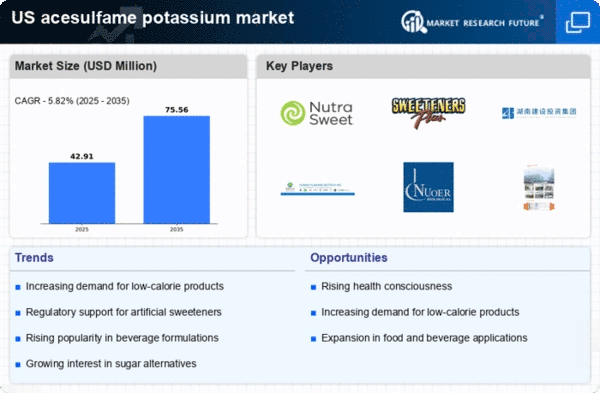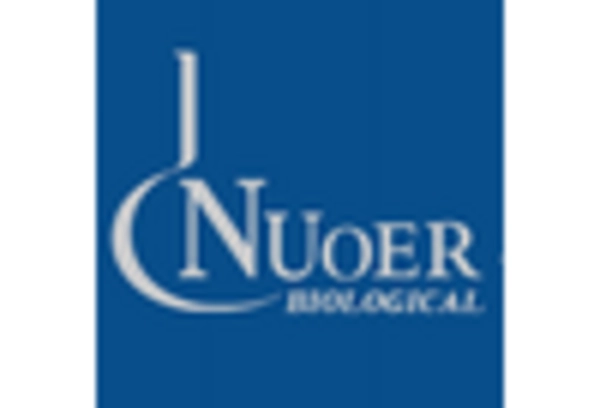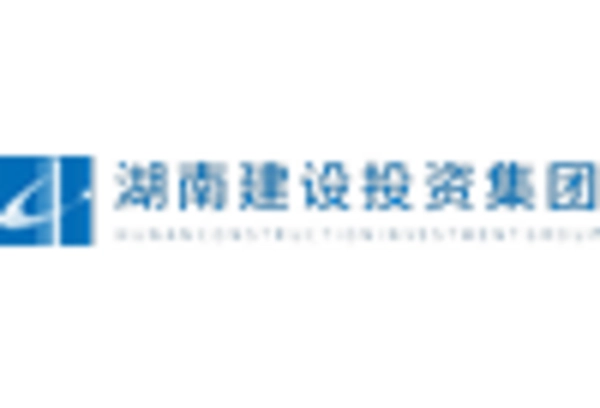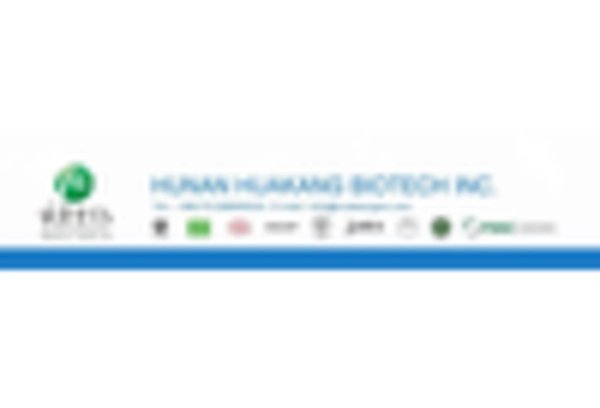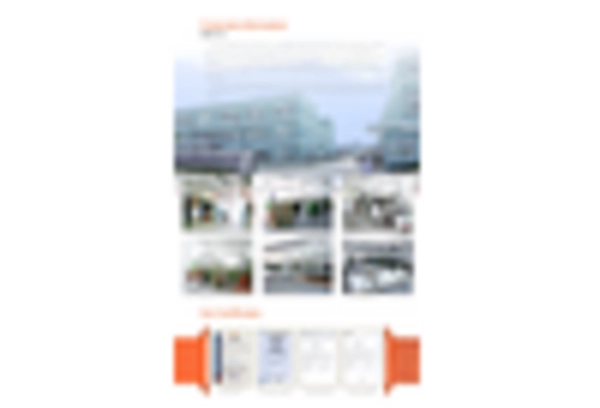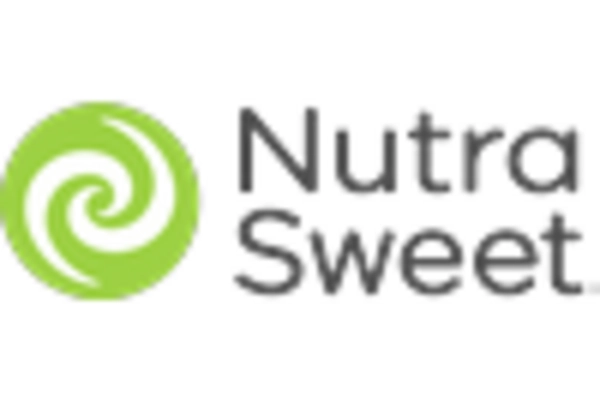The acesulfame potassium market exhibits a dynamic competitive landscape characterized by a blend of innovation, strategic partnerships, and regional expansion. Key players such as NutraSweet Company (US), Celanese Corporation (US), and Tate & Lyle (GB) are actively shaping the market through their distinct operational focuses. NutraSweet Company (US) emphasizes innovation in product development, particularly in creating new formulations that cater to health-conscious consumers. Celanese Corporation (US) is strategically positioned through its commitment to sustainability, aiming to reduce its carbon footprint while enhancing product quality. Meanwhile, Tate & Lyle (GB) is leveraging its extensive distribution network to expand its market reach, particularly in the health and wellness segments. Collectively, these strategies contribute to a competitive environment that is increasingly focused on meeting consumer demands for healthier alternatives.In terms of business tactics, companies are increasingly localizing manufacturing to enhance supply chain efficiency and reduce costs. This approach appears to be a response to the growing demand for acesulfame potassium in various food and beverage applications. The market structure is moderately fragmented, with several key players exerting influence over pricing and product availability. The collective actions of these companies suggest a trend towards consolidation, as they seek to optimize their operations and enhance competitive positioning.
In October NutraSweet Company (US) announced a partnership with a leading beverage manufacturer to develop a new line of low-calorie drinks utilizing acesulfame potassium. This collaboration is significant as it not only expands NutraSweet's product offerings but also aligns with the increasing consumer preference for healthier beverage options. The partnership is likely to enhance NutraSweet's market presence and drive sales growth in a competitive segment.
In September Celanese Corporation (US) unveiled a new sustainability initiative aimed at reducing waste in its production processes. This initiative is crucial as it positions Celanese as a leader in sustainable practices within the acesulfame potassium market. By focusing on eco-friendly production methods, Celanese may attract environmentally conscious consumers and strengthen its brand reputation.
In August Tate & Lyle (GB) launched a digital platform designed to streamline customer interactions and improve supply chain transparency. This move is indicative of the growing trend towards digitalization in the industry, as companies seek to enhance customer experience and operational efficiency. By investing in technology, Tate & Lyle is likely to gain a competitive edge in a rapidly evolving market.
As of November current trends in the acesulfame potassium market are increasingly defined by digitalization, sustainability, and the integration of advanced technologies. Strategic alliances are playing a pivotal role in shaping the competitive landscape, allowing companies to pool resources and expertise. Looking ahead, it appears that competitive differentiation will evolve from traditional price-based competition to a focus on innovation, technological advancements, and supply chain reliability. This shift may ultimately redefine how companies position themselves in the market, emphasizing the importance of adaptability and forward-thinking strategies.


